- Home
- Thomas H. Cook
Mortal Memory Page 16
Mortal Memory Read online
Page 16
“And Laura was comforting her, you said?”
“Well, not exactly,” I answered, remembering it with a fierce clarity.
Rebecca looked at me, puzzled.
“It wasn’t real,” I said, “the sympathy. None of what Laura was doing was real. Not the way she’d slung her arm over my mother’s shoulder. Probably not even the words she must have said to her while they sat on the bed together.”
Rebecca looked at me doubtfully. “How do you know that?” she asked.
“By the way my sister looked at me,” I answered, glimpsing that look again, a chill moving over me, as if a ghost had suddenly drifted past, brushing my shoulder with its pale robe. “It was a strange look,” I added.
In all the years I’d known her, Laura had never glared at me in such a forbidding way as she did that night. I’d climbed the stairs wearily, innocently seeking only the shortest route to my bed. I hadn’t meant to eavesdrop. And yet, as Laura’s head swiveled slowly in my direction, I saw her face stiffen hideously, her eyes take on a dreadful anger.
“She looked like an animal,” I told Rebecca, “trapped, like a creature driven into a corner.”
Rebecca jotted a note into her notebook, but didn’t speak. Even then, as I told Rebecca about that one brief incident, the look in my sister’s face chilled me, and I remembered that during the few seconds she’d stared at me, I’d felt as if I were under fire, bullets slamming toward me, chewing up the floor beneath my feet, riddling the plaster wall behind me, spewing dust into the air.
“I all but dove into my room,” I said, “just to get out of her sight.”
But I’d done more than that. Once in my room, I’d locked the door behind me, then pressed my back against it like some terrorized child in a grade-B horror movie.
I’d still been standing in the same position a few minutes later when I felt the doorknob turn.
“Stevie? You in there?”
It was Jamie.
“Stevie?” he called again. “Stevie, you in there?”
I opened the door, glancing around his lean body toward the empty corridor. The door to my mother’s room was closed. To my right, only a few feet down the dark corridor, the door to Laura’s room was closed too, though I could see a line of bright light just beneath it.
“What’s the matter with you?” Jamie demanded irritably. “You hiding something? Why was the door locked?”
I shrugged, unable to come up with an explanation that would have made any sense to him. “I didn’t know it was locked,” I said finally.
To my surprise, Jamie didn’t challenge the completely illogical nature of my answer, perhaps because the childhood sense of the magical and miraculous which lingers on in adolescence was still so much a part of the way he saw the world that he could casually accept the otherwise impossible notion that doors could sometimes lock themselves.
In any event, he merely walked to the bed, pulled himself up to his upper bunk, and lost himself in one of the sports magazines that were always piled in a jagged stack at the foot of his bed.
For a long time, I remained in the room, sitting in the lower bunk. The weariness I’d felt before as I’d trudged up the stairs had disappeared, and in its place I could feel nothing but a disquieting tension. After a time, it drove me from my bed to the window. By that time, Jamie had fallen asleep, the sports magazine still open on his chest.
It was a clear summer night, and I could see the whole shadowy stretch of the backyard as if it were illuminated by a pale blue light. It was very warm, as well, and the window was fully open, a light breeze rustling the curtains quietly.
I don’t know how long I stood by the window, but after a time, I heard the door at the side of the house—the kitchen door, the one that Mrs. Fields would approach only a few weeks later, then shrink back from in sudden dread—I heard it open, then close, and after that, the muffled sound of footsteps as they moved down the short flight of stairs to the walkway which divided the house from the garage and which led in a gentle curve to the backyard.
My father appeared seconds later, walking alone over the dark green lawn. He was taking long, slow strides, as he moved from the western to the eastern corner of the yard, then back again, a cloud of white smoke trailing behind him like the pale exhaust of an old steam engine.
I don’t know exactly how long he paced the yard alone that night, but only that after a few minutes, I heard the kitchen door open again.
This time it was Laura.
She came around the corner of the house, dressed in her white sleeping gown, her long dark hair hanging in a black wave down her back. She was barefoot, and I could see her white feet as they padded across the dark green grass toward where my father stood, now leaning slightly against the solid wooden fence he’d built along the rear edge of the yard.
He didn’t turn toward her, although he must have heard the door open, just as I had heard it. He didn’t turn because, unlike me, he already knew who’d opened the kitchen door.
“It was obviously a prearranged meeting,” I told Rebecca, “something the two of them had already planned.”
Rebecca didn’t look surprised, and I could tell from her face that she’d fully accepted the conspiratorial nature of my father and my sister’s relationship, its eerie sense of secret conclave.
“Laura walked over to him,” I went on, “and the two of them stood by the fence and talked for a long time.”
From just behind the plain white curtains, while my brother lay snoozing a few feet away, the sports magazine rising and falling to the rhythm of his breath, I watched as my father and sister talked quietly, but very intently, their eyes resting steadily upon each other.
It was probably exactly that feeling of intensity that kept me posted by the window during the next few minutes. It was in every element of their posture, in every glance that passed between them, even in the sharp whispers I could hear but not make out, as if their voices were distant instruments scraping at the air.
They were in plain sight, of course, both of them posed starkly against the moonlight, and yet I felt the inexplicable need to hide behind the white shroud of the bedroom curtains. I didn’t know why, but only that despite their outward show of openness, the fully illuminated yard, even the nearly ostentatious brightness of my sister’s gown, the predominant mood of their meeting was surreptitious and collusive. Perhaps even a little arrogant, as if they both presumed with perfect certainty that the rest of us were sleeping in the dark house, that no matter what they said or how loudly they said it, neither Jamie nor my mother nor I would hear or see anything.
“It was as if, as far as they were concerned, we were already dead,” I said.
Rebecca glanced down at her notebook, as if trying to avoid my eyes. “Did you ever get any idea of what they talked about that night?” she asked, but in a voice that was deliberately flat.
“No.”
But I suspected even then that it was something of the deepest significance to them both. My father had remained rigidly in place throughout the conversation, his eyes focused intently on my sister. For her part, Laura had remained almost as motionless as my father. From a distance, she appeared locked in a stony, reptilian stillness which went against the often frantic quality of her movements, the fidgety fingers and continually bouncing feet. It was as if this stillness had been imposed upon her by the gravity of what was transpiring between them, the sheer awesomeness of its content.
“So you never heard any part of what they said?” Rebecca asked, as if she were still in doubt about the truth of my first answer.
“Well, only a few words at the very end,” I admitted, “but that was after they’d come back into the house.”
I’m not sure how long they’d talked together before my father suddenly nodded sharply, as if in conclusion, then began walking back toward the house. Laura walked beside him, her hand holding to his arm. When they had made it almost halfway across the yard, my father stopped, looked down at my sister fo
r a moment, then lifted his right hand and very gently stroked her hair. It was a gesture that seemed to melt her, so that she leaned toward him and buried her face in his shoulder. My father looked away from her, as if unable to bear what he’d seen in her eyes. Then, in a slow, surprisingly dramatic movement, he lifted his face toward the bright, overhanging moon. They stood in just this position for a long time, she in her pale gown, he in his stone-gray work clothes, the light washing over them, so that they looked vaguely like marble figures, motionless and cold.
Then they separated and walked, without touching, back toward the kitchen door. Seconds later, I heard them pad up the short flight of stairs toward their separate rooms.
I ran to the door of my room and opened it slightly. Through the small slit, I could see my father and Laura as they mounted the stairs, moving slowly, until they came to a stop at the top of the landing. For a brief, suspended instant, they stood, facing each other silently.
Then my father said, “Are you all right?”
And my sister said, “Yes, I’m fine.”
With that, they headed up the corridor, moving directly toward my room. I shrank away from them, not wanting to be seen, and eased my door back so that it was almost closed when they passed. Because of that, I could see only the broad outlines of their two bodies as they swept by my door, featureless and without detail, little more than gliding shapes.
“I heard my father say, Tomorrow.”
And my sister said, “So soon?”
My father did not answer her. Or, if he did, it was later, in some place beyond my hearing. For after that, I heard nothing but the sound of his feet as they moved on down the carpeted hallway, then the sound of his bedroom door as it opened and closed.
Minutes later, I heard Laura open the door to her own room, so I know that for a short time she stood alone in the unlighted corridor. I don’t know why she waited for those few extra minutes, or what thoughts played through her mind as she stood in the darkness outside her room, as if afraid to go in alone.
“And that’s all you heard them say?” Rebecca asked.
“Yes.”
She glanced down at her notes, quietly, thoughtfully, as if she were processing and rearranging information that she alone possessed. Watching her, I felt as if she’d rowed out onto a dark lake, leaving me on shore.
“The ‘tomorrow’ your father talked about,” she said finally, “that would have been the first Tuesday in September?”
“I suppose.”
“The first day of school,” she added, almost to herself. Then she came back to me suddenly, her dark eyes darting over to mine. “Did anything unusual happen that next day?” she asked. “Did you notice any change in anything?”
“No,” I said.
Again, Rebecca appeared to draw into herself, her mind deep in thought, as if she were unable to accept what appeared to be the routine notion that “tomorrow” had been nothing more than my father’s idle reference to the beginning of school, and Laura’s whispered reply just a schoolchild’s regret.
I leaned forward slightly. “Should I have seen something different that day?” I asked. “Was something going on?”
She didn’t answer, but only flipped back a few pages in her notebook, scanning the lines she’d written until she found the right one.
“You said before that when Laura and your father were down by the fence, that they hadn’t been concerned that anyone in the house might be watching them,” she said.
“That’s right.”
“You said that it was as if they thought the people in the house were already dead.”
I knew then what she was getting at. “How long had he been planning it, Rebecca?”
“Maybe longer than you think, Steve.” She waited, trying to gauge how the latest information might affect me. “At least three or four months,” she said finally.
“How do you know that?”
“Because of something Swenson found,” she told me. “Travel brochures. A lot of them.”
Occasionally, I’d seen my father reading an adventure novel, always slowly, taking weeks to slog through each one. I’d also seen him idly turning the pages of the local newspaper. But I’d never seen him browsing through anything that resembled a travel brochure.
“He found quite a few of them in that little office your father had at the rear of the store,” Rebecca added, without emphasis.
It was little more than a stockroom, as I recalled then, small and cramped, but more secure, with many locks. It was the place he’d kept the unassembled Rodger and Windsor bicycles before bringing them home. Once or twice I’d seen him there with Nellie Grimes, the bookkeeper he’d hired some years before, but on all other occasions, he’d been in the room alone. Because of that, it was easy for me to think of it as the place of his solitude, the cluttered little room which he’d set aside for his plotting, the careful working out both of his crime and his escape.
“These brochures,” I said. “Where did they come from?”
“He got them through the mail,” Rebecca answered. “There was no indication that he ever went to a travel agency.”
I shrugged. “I don’t ever remember seeing any travel brochures around the house.”
“That’s because they weren’t mailed to McDonald Drive,” Rebecca said. “They were all mailed to the hardware store downtown.” She paused a moment, then added, “Some had been mailed as long as three months before the murders.”
I leaned back, as if unable to absorb this latest bit of information, the full-blown proof, as if any had still been necessary, of my father’s plot.
“The brochures were from all over,” Rebecca said. “Mexico, Europe, Asia, South America. That’s why they weren’t much help to the police.”
“So they never had any idea where he went?”
“Not until they found the car,” Rebecca said.
“That was in Texas, wasn’t it?” I said tentatively, only vaguely recalling something Quentin had told me. “Near the Mexican border?”
“Right on the border, actually,” Rebecca said. “In Laredo.”
I nodded. “That’s right,” I said. “I remember that Quentin told me about them finding the car.”
“Swenson brought it back,” Rebecca said, “but no one ever claimed it.”
So that it still sat in the shadowy corner of the police garage in Somerset, as Rebecca went on to inform me, a dark, eerie symbol of my father’s flight. I could see it there, rusting, abandoned, the odor of my father’s cigarettes still lingering in the ragged brown upholstery, dust gathering on the black, serrated wheel where he had laid his hands.
“You could claim it if you wanted,” Rebecca added softly.
I shook my head wearily. “No, I don’t want it,” I whispered.
But I remembered it, nonetheless, as I told her.
Then I related a time when my father had driven all of us far out into the woods, to where an old cabin, not much more than a log shack, sat in a primeval forest.
It was probably four years or so before the murders, and we’d all gone out in that same old car in which he’d later made his escape—Laura and Jamie and I scrunched up together in the back seat; my mother, looking vaguely content on the passenger side; my father, his big hands on the wheel, smiling with a kind of gleeful adventurousness as we bumped along the barely passable road.
He’d stumbled upon the cabin while hunting as a boy, and I suppose there was something about it which had suddenly called him back. “I want to show you all something,” he’d said at the breakfast table that morning.
We hit the road about an hour later, drove for a long time, paved roads eventually giving way to unpaved ones, then at last on to what were little more than ancient logging trails. It was already early in the afternoon by the time we finally reached the cabin.
It was set in a deep wood, near a winding brook, and I could tell by the way my father looked at it that it represented something to him, perhaps his ideal of a forest parad
ise, remote, primitive, and uncomplicated. When he looked at it, his face took on the kind of expression I would later see in paintings of the saints when they saw God, that here before them was the true, abiding majesty. That day, he even seemed like them, saintly, a father out of the great book of fatherhood, a man of mythic kindness and commitment, capable of making an epic sacrifice.
He played with us in the forest, a long game of hide-and-seek, in which we skirted behind bushes and fallen trees, while my mother watched us from her place on the cabin’s small, dilapidated porch. We played tag, and he ran after us, lifting Laura into the air each time he caught up with her, their faces nearly touching as he lowered her to the ground again.
Toward evening, it began to snow, and while the rest of us gathered up our things and prepared to leave, my father walked out into the woods again and stood alone among the trees, his arms lifted slightly, hands open, catching snowflakes in his palms.
As I finished relating this episode, I realized that my eyes had grown moist.
“I’m all right,” I assured Rebecca quickly, gathering myself in again. “I just got a little nostalgic, I guess.”
It was more than that, though. I’d entered a new realm of feeling in regard to my family’s slaughter. I realized that it was no longer the explosive instant which horrified me, as it had in the restaurant days before, but the long decay of love, the slow stages of its dissolution.
I could see that Rebecca understood that, but what she could not have known was that only part of my anguish was connected to the dark reliving of my family’s death. The rest had to do with me, the volcanic discontent I had come to feel in the presence of everything that had grounded and sustained me in the past. It was as if that airy, unreal dream house I’d been working on for so long was now the only one in which I wanted to live. It was without walls. It had no foundation. It was pure fantasy. And yet it seemed right in a way that made everything else seem wrong.
After a moment, my eyes settled upon Rebecca. “They actually saw the monster, didn’t they?” I asked. “My father and the rest of them? Whatever it was that was eating them alive, they actually looked it in the eye.”

 The Interrogation
The Interrogation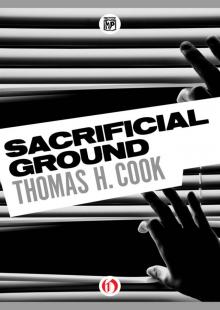 Sacrificial Ground
Sacrificial Ground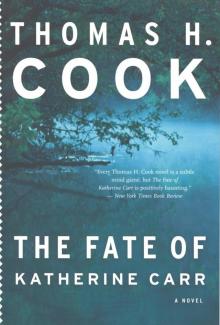 The Fate of Katherine Carr
The Fate of Katherine Carr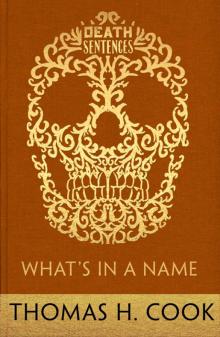 What's In A Name
What's In A Name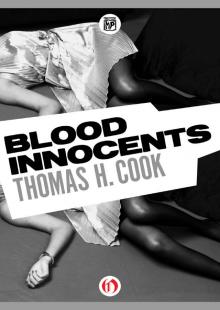 Blood Innocents
Blood Innocents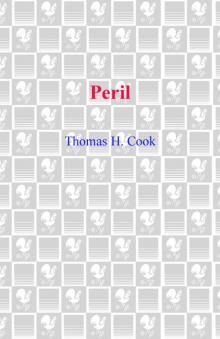 Peril
Peril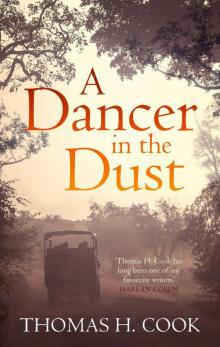 A Dancer In the Dust
A Dancer In the Dust Breakheart Hill
Breakheart Hill The Chatham School Affair
The Chatham School Affair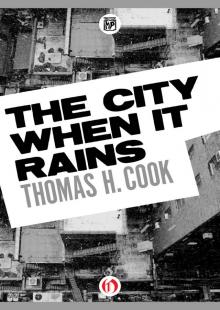 The City When It Rains
The City When It Rains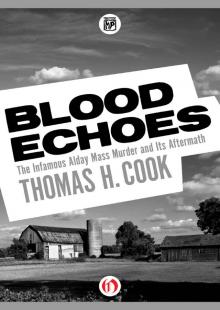 Blood Echoes
Blood Echoes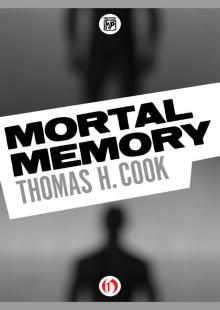 Mortal Memory
Mortal Memory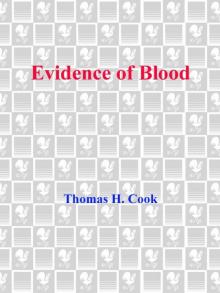 Evidence of Blood
Evidence of Blood Into the Web
Into the Web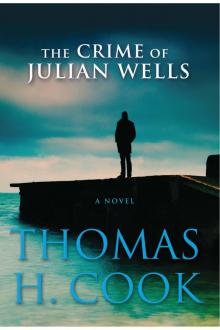 The Crime of Julian Wells
The Crime of Julian Wells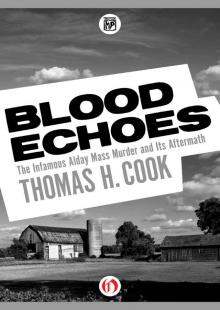 Blood Echoes: The Infamous Alday Mass Murder and Its Aftermath
Blood Echoes: The Infamous Alday Mass Murder and Its Aftermath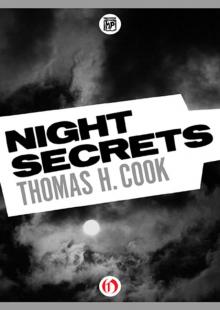 Night Secrets
Night Secrets Places in the Dark
Places in the Dark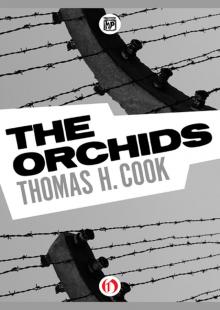 The Orchids
The Orchids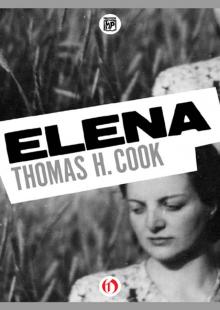 Elena
Elena Streets of Fire
Streets of Fire Instruments of Night
Instruments of Night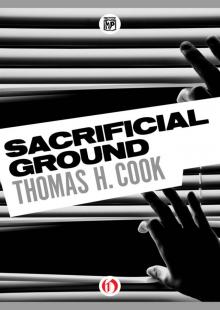 Sacrificial Ground fc-1
Sacrificial Ground fc-1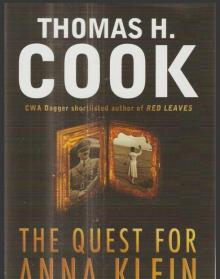 The Quest for Anna Klein
The Quest for Anna Klein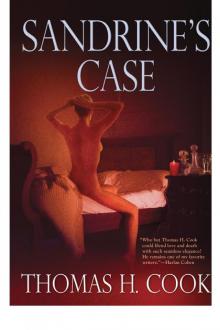 Sandrine's Case
Sandrine's Case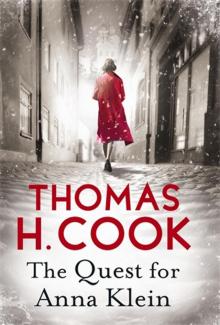 Quest for Anna Klein, The
Quest for Anna Klein, The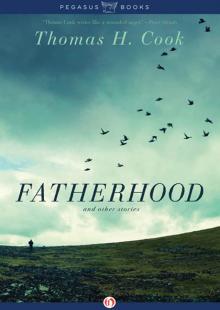 Fatherhood
Fatherhood Flesh and Blood
Flesh and Blood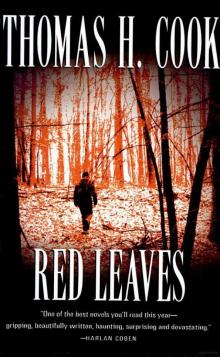 Red Leaves
Red Leaves